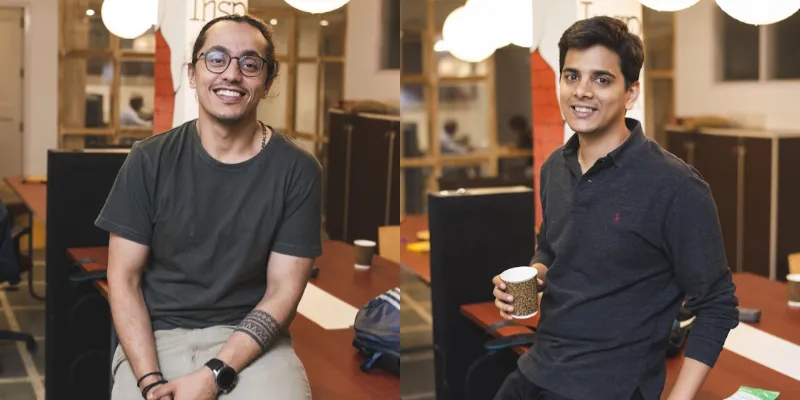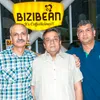These entrepreneurs aim to bring cafe-like experience of freshly brewed coffee to coffee lovers
Founded in 2018 by a jeweller and an electrical engineer, Beanly aims to bring freshly brewed coffee at the doorstep of coffee lovers.
Coffee is not merely a beverage. It is drunk by millions to soothe the inner faculties of the body and the mind, and to start the day on an energetic note. It even became a quarantine trend. Remember the whipped coffee or the ‘dalgona coffee’?
However, with COVID-19 cases skyrocketing in India, going to a cafe might not be feasible in the near future. Then how can one bring the cafe experience home? The Delhi-based coffee company, Beanly, might have a solution.
Founded in 2018 by two friends — Rahul Jain and Samayesh Khanna — Beanly aims to provide fresh coffee beans to its customers.

Samayesh Khanna and Rahul Jain, Co-founders, Beanly
How it all began
Rahul, a jeweller by profession and Samayesh, who ran an accelerator, founded Beanly because they were very passionate about coffee and had significant interest in the coffee-making business.
“We saw a big gap in the coffee products that were available in the market,” Rahul says, adding, “Most of them were usually either not fresh or just not up to the mark. As coffee lovers, that was a problem, and we set out to solve it (but only for ourselves).”
The eureka moment came when people started reaching out to them and they realised the business opportunity.
“Coffee starts losing its flavour and aroma 17 mins after the coffee beans are grounded. Hence, by the time the coffee reaches the customer, it is not in its fresh form,” says Samayesh
Rahul further adds that instant coffee is the only resort that people have to make coffee at home. In addition, he says, “For a cafe-like coffee experience and freshly brewed coffee, people have to often spend on home grinders and machines that cost somewhere between Rs 75,000 and Rs 2 lakh.”
So to come up with a solution, Rahul and Samayesh started travelling. They visited the plantations in south India, so as to get good quality coffee beans.
In addition, to ensure that coffee remains fresh, the founders came up with a special type of packaging. The paper for packaging is sourced from South Korea and Japan. The packaging has zero percent oxygen attrition, is nitro flushed, and hermetically sealed. The company also claims that the bags are never infused with any preservatives, additives or aromatic infusions, and the coffee still remain fresh. The pourover bags are also manufactured in-house.
The pourover bags cost Rs 35 and one dip bag costs Rs 26. They are manufactured in the company’s unit at Ghitorni and Shahpur Jat in Delhi.

Pourover Bags
The fourth wave of coffee
The coffee culture in India can be divided into four phases. The first phase came in the mid-nineteenth century when making coffee was considered a traditional process, with less focus on quality.
The second phase saw people getting more cautious about quality. This phase began after 1966 and also saw coffee giant Starbucks (launched in 1971) slowly making its way into the world.
The third phase was when quality became the prime focus by providing freshly roasted coffee. Blue Tokai is said to belong to the third wave of coffee.
And in the fourth wave, the coffee experience is not just limited to cafes but companies like Beanly which endeavour to bring the cafe experience of the Baristas, CCDs, and Starbucks to your home.
“Always going to the cafe is not an option. We want to bring freshly brewed coffee to home at affordable prices,” says Rahul.

Leaning on D2C
Beanly is a Direct-to-Consumer (D2C) brand. It sells through Amazon and its own website. Currently, it is present in Bengaluru, Gurugram, and Delhi, and operations are underway to launch it in Mumbai and Kolkata. Though the founders didn’t reveal the turnover, they added that the company sells 30,000 to 50,000 coffee packs a month.
The company has partnered with corporates such as Little Black Book (LBB) for supplying coffee. Its partners also include Delhi-based coffee brand, , to provide freshly roasted coffee.
India is known to be a tea country but that scenario is also tilting in favour of quality coffee. Rahul says, “India is definitely gravitating towards freshly brewed coffee.”
According to Rahul, COVID-19 did not have much impact on the business and the founders have some plans in the coming times. The bootstrapped company is looking at infusing some capital, not from venture capitalists but from MSME schemes and utilise it in marketing and retail.
Samayesh says, “It is an online-first company but the importance of retail cannot be ignored. Also, we will spend on marketing so as to get our brand name out there.”
He says their BYOB (Be Your Own Barista) campaign was a success and they plan to come up with interesting marketing strategies in the next few months.
Nevertheless, Beanly says staying focused on the quality will always be the company’s motto and vision.
Edited by Kanishk Singh









